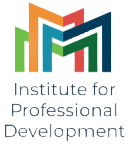Maximize Agile Outcomes with Analysis
More and more organizations are moving to a model where business analysis is embedded into team and project work rather than being performed by a designated business analyst. Business need should not be an add-on piece; it should always be at the forefront of any project.
Whether you are doing an improvement project, a traditional waterfall project, a Scrum project, or taking an Agile approach to your projects, prepare your team to perform business analysis that keeps your project focused on business needs.
Maximize Agile Outcomes with Analysis
3 days + 6 months coaching
More and more organizations are moving to a model where business analysis is embedded into team and project work rather than being performed by a designated business analyst. Business need should not be an add-on piece; it should always be the main concern of any project. Prepare your team to perform business analysis without the business analyst.
Successful agile teams need great analysis, yet the role of who does the analysis is often undefined and varies from team to team. This workshop has been created to help Agile Teams and Team Members operate effectively on an agile team and in an agile environment doing great agile analysis.
We partner with Angela Wick of BA-Squared to offer this customizable experience that includes two components: classroom training and ongoing coaching.
During the 3-day classroom experience, participants will use a case study to look at and practice concepts and techniques for great analysis on agile projects, including:
- Defining vision, problems and results needed
- Identifying good and poorly written user stories
- Writing user stories
- Using the Gherkin Method for user story acceptance critera
- Splitting user stories
- Analyzing the backlog
- Prioritizing the backlog
- Relating analysis models to user stories
- Identifying what stories from case study need models
- Facilitating for better conversations and rich dialog
- Using facilitation techniques for innovation
- Creating a Story Map and using it to:
- Analyze for gaps
- Define MVP
- Organize releases
- Analyzing the user experience
The classroom experience is followed up with cohort coaching sessions. Every three weeks, participants join a 1-hour virtual session and bring work-related examples, questions, and challenges that match these topics:
- Product Owner and Analyst Collaboration
- A Healthy Backlog
- User Stories
- Acceptance Criteria
- Story Splitting
- Prioritization
- Analysis Models
- Collaborating for better dialog

